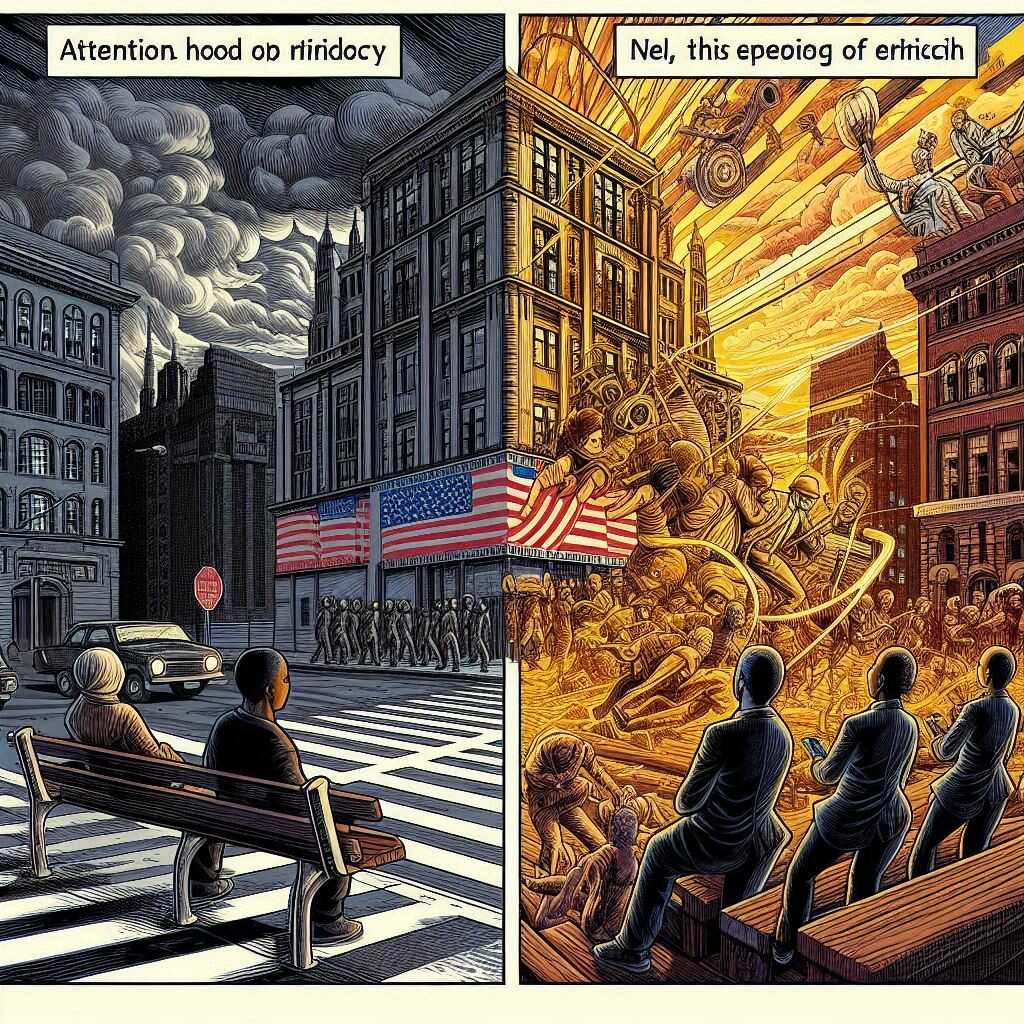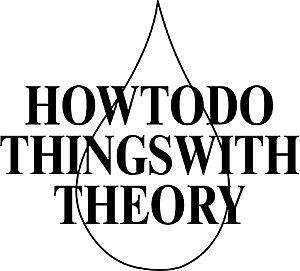2024-2025 Amit Rai's seminar: How to do things with Attention?
The seminar is conceived and offered by Amit S. Rai
The seminar from Confluence to Confluence
Seminar participants second year: Echo Guo, Ivčo Ružić , Nada Gambier
Seminar participants first year: Agnese Krivade, Dana Andrei, Dory Ikonen, Sanna Hirvonen, Hannah van der Schaaf, Nika Pecarina, Fagner Lima
How to do things with Attention?
INTRODUCTION
This year we begin with Walter Benjamin’s “Work of Art in the Age of Mechanical Reproduction” to ask how we can collectively create concepts and practices of attention useless for fascism, Zionism, racist capitalism, capitalist racism, heteropatriarchy and settler colonialism? How can the communist project of the politicization of art be furthered in a decolonization of attention? What must happen to attention, what to “decolonization,” what to “art”? We will create practical diagrams of our own attention ecology along with doing close readings of key theorists and practitioners of critical attention studies.
This seminar affirms an anti-colonial and collective practice of attention for the proliferation of attentions useless for fascism and racial capital (Benjamin, 1938; Harney and Moten, 2013, 2023; Wilderson, 2010, 2020). For a revolutionary becoming of our monstrous attentions within and against racial, caste, fascist capitalism. We understand racial capital as the constituted form of the relations of racially stratified socio-economic “reason,” and attention ecologies as modes of fetishized perception produced in and through the formula and spectacle of this contradictory “objectivity” (Bonefeld, 2014: 213; 2022: 21). An attention to the political ontologies of autonomous pirate care, transnational hacker collectivities, Dalit jugaad (work around) ecologies in contexts of class and caste struggle and revolutionary joy is to reactivate the Indo-European etymology of attention: the Latin attendere means to bend to, notice, to turn/stretch towards, and to apply, while the Sanskrit adhyaan means meditation or concentration. Decolonising attention is a stretch of perception toward an unfolding horizon of insurrection and emancipation not as teleological endpoint of dissensual struggles but rather as the ontological plane of consistency for revolutionary becomings as yet unknown (Ingold, 2021; Negri, 1977; Graziano, 2024). As such this seminar is rooted in the affirmation of the necessity of prefigurative politics of perception in hactivist practices of the social reproduction of the commodity labour power and in subaltern struggles for intersectional emancipation within and against racial-caste and surveillance capital.
Today, as Yves Citton (2017) reminds us, if you’re getting something for free you are the product. But who is this “you”? What is the nature of subjectivity in the networked society of the spectacle? The over-surveilled, individualized prosumer of platform capitalism is instafamous aspiring and themselves an accelerating spectacle, an infinitely modulated node in the production of flows of desire, matter, commodities, spirit, knowledge, power, labor time, financialization, and information. We live in a time of information entropy which AI algorithms tend to reduce to zero by a “pathological hyper-focus” (the higher the entropy in a closed system the higher the disorder, uncertainty, dissemination of that system . . . ).
This seminar poses some methodological questions: What is non-representational attention and which experiments in aesthetic/artistic/artisanal practice de-habituate attentional capacities? How can attention be decolonized in collective experiments of prefigurative politics? (NB: This seminar relates attention to bodily and collective capacities to affect and be affected rather than individualised human consciousness of a representable object.) We pursue these questions of method by collectively studying the political economy of attention in two very different contexts: emancipatory movements of intersectional justice and large language based attention algorithms in AI.
You can start now: check the app usage on your mobile phone, make a diagram of the relations of force, value, and sense that you can intuit from your app usage chart. Share with comrades. What does your diagram suggest to you about your habits of attention?
And:
Keep an attention diary every day for three weeks: Record in whatever way you want (poetry, prose, audio, phone movie clip, wood chips, something else) events of attention in habits, routines, consumption, and creative work. What for you would be a revolutionary becoming of your attention ecology?
Readings:
Seminar 1:
Benjamin, W. “The Work of Art in the Age of Mechanical Reproduction.” 1938.
Pedersen, M.A., Albris, K. and Seaver, N., 2021. “The Political Economy of Attention.” Annual Review of Anthropology 50, nr. 1 (2011): 309-325.
Watzl, S. “The Nature of Attention.” Philosophy Compas 6 (2011): 842-853.
Gleesoz J J, and O’Rourke E. “Introduction.” In: Gleeson J J, and O’Rourke E, eds. Transgender Marxism. London: Pluto Press, 2021.
Selections from Graziano, Pirate Care.
Selections from Lotz, The Capitalist Schema. 2016.
To screen:
BLOODSUCKERS, Blutsauger, dir. Julian Radlmaier, Germany, 2021.
Seminar 2:
Amaro, R. The Black Technical Object: On Machine Learning and the Aspiration of Black Being. National Geographic Books, 2023.
Vaswani, A., Shazeer, N., Parmar, N., Uszkoreit, J., Jones, L., Gomez, A. N., Łukasz K and Polosukhin I. “Attention Is All You Need.” Advances in Neural Information Processing Systems, 30 (2017): 1-15.
Excerpts from: Bonefeld W (2014) Critical Theory and the Critique of Political Economy. London: Bloomsbury, 2014.
Seminar 3:
Hartman, Saidiya. Wayward Lives, Beautiful Experiments: Intimate Histories of Social Upheaval. W.W. Norton: New York, 2019.
Selections from Transgender Marxism
Excerpts from: Ewald F. The Birth of Solidarity: The History of the French Welfare State. Durham: DUP, 2020.
Excerpts from: Bonefeld W. Critical Theory and the Critique of Political Economy. London: Bloomsbury, 2014.
Seminar 4:
Bonefeld, W. “Cracking Economic Abstractions: Bringing Critical Theory Back In.” In: Werner Bonefeld and Chris O'Kane (eds.). Adorno and Marx: Negative Dialectics and the Critique of Political Economy, 15-33. London: Bloomsbury Academic, 2022.
Munro, K. and O’Kane, C. “The Artisan Economy and the New Spirit of Capitalism.” Critical sociology 48, nr. 1 (2022): 37-53.
Orozco, A.P. and Mason-Deese, L. The Feminist Subversion of the Economy: Contributions for a Life Against Capital. Common Notions, 2022.
Seminar Bibliography:
Alliez É (2013) Ontology of the diagram and biopolitics of philosophy. A research programme on transdisciplinarity. Deleuze studies 7(2): 217-230.
Amaro, R. (2023). The Black technical object: On machine learning and the aspiration of Black being. National Geographic Books.
Attanasio, G., Nozza, D., Hovy, D., & Baralis, E. (2022). Entropy-based attention regularization frees unintended bias mitigation from lists. arXiv preprint arXiv:2203.09192.
Atchley, P., & Lane, S. (2014). Cognition in the attention economy. In: Psychology of learning and motivation (Vol. 61, pp. 133-177). Academic Press.
Banks DA (2023). The City Authentic: How the Attention Economy Builds Urban America. Univ of California Press.
Bonefeld W (2001) Kapital and its subtitle: a note on the meaning of critique. Capital & Class, 25(3): 53-63.
Bonefeld W (2014) Critical theory and the critique of political economy. London: Bloomsbury.
Bratich J (2022) On Microfascism: gender, war, and death. Brooklyn: Common Notions.
brown, maree adrienne. (2017). Emergent strategy: Shaping change, changing worlds. Chico, CA: AK Black.
Bueno, C. C. (2016). The attention economy: labour, time and power in cognitive capitalism. Rowman & Littlefield.
Cheah P (2013) Political bodies without organs: on Hegel's ideal state and Deleuzian micropolitics. In: Houle K and Vernon J (eds) Hegel and Deleuze: together again for the first time. Evanston: NUP, pp. 97-114.
Ciampaglia, G. L., Flammini, A., & Menczer, F. (2015). The production of information in the attention economy. Scientific reports, 5(1), 9452.
Citton, Y. (2017). The ecology of attention. John Wiley & Sons.
Cole, T. (2023). Black paper: Writing in a dark time. University of Chicago Press.
Crary, J. (1989). Spectacle, attention, counter-memory. October, 50, 97-107.
Cubitt, S. (2016). Finite media: Environmental implications of digital technologies. Durham, NC: Duke University Press.
Cusicanqui, Silvia Rivera (2012) Ch’ixinakax utxiwa: A Reflection on the Practices and Discourses of Decolonization. The South Atlantic Quarterly 111(1): 95-109.
Da Silva, D. F. (2016). On difference without separability. Catalogue of the 32a São Paulo Art Biennial,‘Incerteza viva’(Living Uncertainty), 57-65.
Davenport, T. H., & Beck, J. C. (2001). The attention economy. Ubiquity.
Davis AY (2016) Freedom is a constant struggle: Ferguson, Palestine, and the foundations of a movement. Chicago: Haymarket Books.
Deleuze, G. (1988a) Spinoza: Practical Philosophy. City Light Books.
Deleuze G (1988b) Foucault. Minneapolis: UMP. Chapter 2: A new cartographer.
Deleuze, G. (1994) Difference and Repetition. Columbia UP.
Doran, P. (2017). A political economy of attention, mindfulness and consumerism: reclaiming the mindful commons. Taylor & Francis.
Franck, G. (2019). The economy of attention. Journal of sociology, 55(1), 8-19.
Gilmore, Ruth Wilson. (2022). Abolition Geography: Essays Towards Liberation. Verso Books.
Gilroy, P. (2005). Postcolonial melancholia. New York: Columbia University Press.
Gleeson J J, and O’Rourke E, eds. (2021) Transgender Marxism. London: Pluto Press.
Groff, Lauren (2023) The Vaster Wilds. London: Hutchinson Heinemann.
Guattari, F. (2005). The three ecologies. Bloomsbury Publishing.
Graziano, V (2024). Pirate Care. Forthcoming.
Haiven, M. (2018). Art after money, money after art: Creative strategies against financialization. London: Pluto Press
Harney and Moten, The Undercommons (2013); All incomplete (2022)
Hartman, Saidiya (2019) Wayward Lives, Beautiful Experiments: Intimate Histories of Social Upheaval. W.W. Norton: New York.
Heidegger M (1977) The Question concerning Technology.
Kraus C and Lotringer S (2001) Hatred of Capitalism: A Semiotext(e) Reader. New York: Semiotexte.
Lane, S. M., & Atchley, P. E. (2021). Human capacity in the attention economy (pp. x-223). American Psychological Association.
Lugones, Marìa. “Toward a Decolonial Feminism.” Hypatia 25, no. 4 (2010): 742–59. https://doi.org/10.1111/j.1527-2001.2010.01137.x.
Marx, On the Organic Composition of Capital from Capital Volume 3: Chap. 8; and on so-called primitive [originary] accumulation Capital Vol. 1: Chap. 26.
Mbembe A (2020) Necropolitics. Durham: DUP.
Moten, F. (2017). Black and blur. Durham, NC: Duke University Press.
Moulier-Boutang Y (2011) Cognitive capitalism. Cambridge: Polity.
Nguyen, D. L. (2022). Walter Benjamin and the Critique of Political Economy. London: Bloomsbury.
Nichols, R. (2020). Theft is property! Dispossession and critical theory. Duke University Press.
Pedwell, C. (2024). Speculative machines and us: more-than-human intuition and the algorithmic condition. Cultural Studies, 38(2): 188-218.
Ruiz and Vourloumis, The Alleys (2023). London: Autonomedia.
Sha Xin Wei. “Whitehead’s Poetical Mathematics.” Configurations 13, no. 11, Special Issue on Whitehead, edited by Steven Meyer and Elizabeth Wilson (2005): 77–94.
Sha Xin Wei. Poiesis and Enchantment in Topological Matter. Cambridge, MA: MIT Press: 2013.
Sha Xin Wei. “Theater without Organs: Co-Articulating Gesture and Substrate in Responsive
Environments.” In Living Architecture Systems Group White Papers, ed. Philip Beesley and
Ala Roushan, 276–91. Cambridge, Ontario: Riverside Architectural Press, 2016.
Sha Xin Wei. “Topology and Morphogenesis.” Theory, Culture and Society 29, no. 4/5, Topologies of Multiplicity, edited by Celia Lury (2012): 220–46.
Sharpe, J., & Spivak, G. C. (2003). A conversation with Gayatri Chakravorty
Spivak: Politics and the imagination. Signs: Journal of women in culture and society, 28(2), 609-624.
Singh, N. P. (2016). On race, violence, and so-called primitive accumulation. Social Text, 34(3), 27-50.
TallBear, Kim. “Dossier: Theorizing Queer Inhumanisms: An Indigenous Reflection on Working Beyond the Human/Not Human.” In GLQ: A Journal of Lesbian and Gay Studies, Vol. 21(2-3). (2015): 230-235.
Terranova, T. (2012). Attention, economy and the brain. Culture Machine, 13.
Vaswani, A., Shazeer, N., Parmar, N., Uszkoreit, J., Jones, L., Gomez, A. N., Łukasz K and Polosukhin I (2017) Attention is all you need. Advances in neural information processing systems, 30: 1-15.
Vishmidt, M. (2018). Speculation as a Mode of Production: Forms of Value Subjectivity in Art and Capital. Leiden: Brill.
Wa Thiong'o, N. (1992). Decolonising the mind: The politics of language in African literature. East African Publishers.
Williams, J. (2018). Stand out of our light: Freedom and resistance in the attention economy. Cambridge University Press.
Wu, T. (2017). The attention merchants: The epic scramble to get inside our heads. Vintage.
Wu, Tim. (2019). Blind spot: the attention economy and the law. Antitrust Law Journal, 82(3), 771-806.
Zeller, C. (2012). Language of immediacy: authenticity as a premise in benjamin’s the work of art in the age of its technological reproducibility. Monatshefte, 104 (1): 70-85.
Zhai, S., Likhomanenko, T., Littwin, E., Busbridge, D., Ramapuram, J., Zhang, Y., … & Susskind, J. M. (2023, July). Stabilizing transformer training by preventing attention entropy collapse. In International Conference on Machine Learning (pp. 40770-40803). PMLR.


